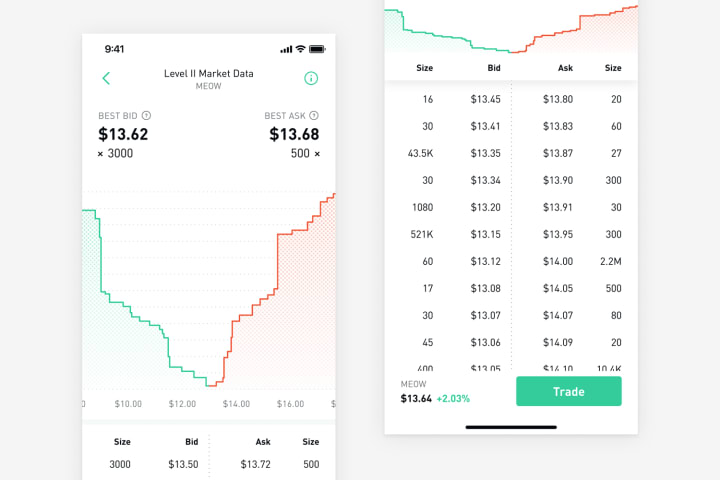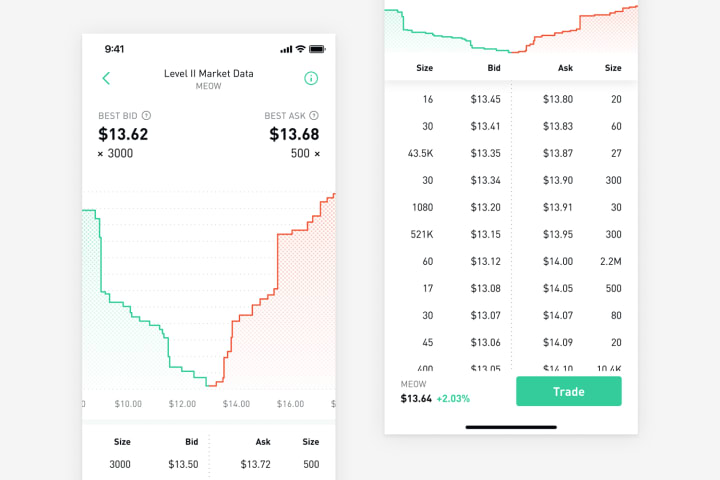
Stock Market Basics
Investing in the stock market can be a great way to grow your wealth over time. Before diving in, it’s important to understand the basics of how the stock market works.
At its core, the stock market is a place where investors can buy and sell ownership stakes in companies. When a company needs to raise money, it can issue shares of stock to the public. These shares represent a portion of ownership in the company and can be bought and sold on the stock market.
As an investor, when you buy shares of a company’s stock, you become a part-owner of that company. This means that you have a say in how the company is run and are entitled to a portion of any profits the company earns.
It’s important to keep in mind that stock prices can be volatile and can fluctuate based on a variety of factors, including news about the company or the overall state of the economy. It’s also important to have a long-term mindset when investing in the stock market, as short-term fluctuations can be unpredictable.
By understanding these basics, you’ll be better equipped to make informed decisions when it comes to investing in the stock market.
What are Stocks?
Stocks are simply an investment method to build wealth. When you invest in the stock of a company it means you own a share in the company that issued the stock.
Stocks investment is a way to invest in some of the most successful companies.
Also, there are different types of stocks available in the market to invest/trade in. These stocks are categorised based on the following criterias:
Market capitalization
Ownership
Fundamentals
Price votality
Profit sharing
Economic trends
How Does the Stock Market Work?
Companies raise money on the stock market by selling ownership stakes to investors. These equity stakes are known as shares of stock.
By listing shares for sale on the stock exchanges that make up the stock market, companies get access to the capital they need to operate and expand their businesses without having to take on debt. Investors benefit by exchanging their money for shares on the stock market.
As companies put that money to grow and expand their businesses, it profits the investors as their shares of stock become more valuable over time, leading to capital gains. In addition, companies pay dividends to their shareholders as their profits grow.
The performances of individual stocks vary widely over time, but taken as a whole, the stock market has historically rewarded investors with average annual returns of around 10%, making it one of the most reliable ways of growing your money.
Stock Market Basics - Important Terms
Here is a list of commonly used terms when talking about stock market. You can use this as a glossary to look for any time you want to learn.
Sensex

Sensex is a collection of the top 30 stocks listed on BSE by way of market capitalisation.
SEBI

Securities and Exchange Board of India (Sebi) is the securities market regulator to oversee any fraudulent transactions and activities made by any of the parties: companies, investors, traders, brokers and the likes.
Demat

Demat, or dematerialised account, is a form of an online portfolio that holds a customer’s shares and other securities in an electronic (dematerialised) format.
Trading

It is the process of buying or selling of shares in a company.
Stock Index

A stock index or stock market index is a statistical source that measures financial market fluctuations. They are performance indicators that indicate the performance of a certain market segment or the market as a whole.
Portfolio

It is a collection of a wide range of assets that are owned by investors. Portfolio can also include valuables ranging from gold, stocks, funds, derivatives, property, cash equivalents, bonds, etc.
Bull Market

In a bull market, companies tend to generate more revenue, and as the economy grows, consumers are more likely to spend.
Bear Market

Bear markets refers to a slowdown in the economy, which may make consumers less likely to spend and, in turn, lower the GDP.
Nifty50

Nifty 50 is a collection of the top 50 companies listed on National Stock Exchange (NSE).
Stock Market Broker

A stock broker is an investment advisor who execute transactions such as the buying and selling of stocks on behalf of their clients.
Bid Price

Bid price is the highest price a buyer will pay to buy a specified number of shares of a stock at any given time.
Ask Price

Ask price in stock market refers to the lowest price at which a seller will sell the stock.
IPO

Initial Public Offer (IPO) is the selling of securities to the public in the primary market. It is the largest source of funds with long or indefinite maturity for the company.
Equity

Equity is the value that would be received by the shareholder if all of the company’s assets were liquidated and all of the company's debts were paid off.
Dividend

Dividend refers to cash or reward that a company provides to its shareholders. It can be issued in various forms, such as cash payment, stocks or any other form.
BSE

Bombay Stock Exchange (BSE) is the largest and first securities exchange market in India. It was established in 1875 as the Native Share and Stock Brokers' Association. It is also the first stock exchange in India and provides an equities trading platform for small-and-medium enterprises.
NSE

National Stock Exchange was the first to implement screen-based or electronic trading in India. It is the fourth largest stock exchange in the world in terms of equity trading volume as per the World Federation of Exchanges (WFE).
Call & Put Option

Call option give the investor the right to purchase the underlying security, while put option give the investor the right to sell shares of the underlying security. Both the opinion let the investors profit from movements in a stock's price.
Types of Stock Market
There are 2 types of stock market:
Primary Market: It creates securities and acts as a platform where firms float their new stock options and bonds for the general public to acquire.
Secondary Market: Here, investors trade in securities without involving the companies who issued them in the first place with the help of brokers.
Ask and Close
The term ‘ask’ in stock market refers to the lowest price at which a seller will sell the stock. ‘Closing price’ generally refers to the last price at which a stock trades during a regular trading session.
Moving Average
It is a stock indicator commonly used for technical analysis to smoothen the price data by creating a constantly updated average price. A rising moving average indicates that the security is in an uptrend, while a declining moving average indicates a downtrend.
In conclusion, understanding the basics of the stock market is essential for anyone looking to invest in stocks. It's important to understand that when you invest in a company, you're essentially buying a share of that company, and in return, you'll receive a portion of its profits. The stock market can be a great way to build wealth over time, but it's important to do your research and invest wisely. Factors such as market trends, company performance, and economic conditions can all have an impact on stock prices. With the right knowledge and strategy, however, investing in the stock market can be a smart move towards achieving your financial goals.
About the Creator
Bharath S
From Oddanchatram, Tamil Nadu, India






Comments
There are no comments for this story
Be the first to respond and start the conversation.